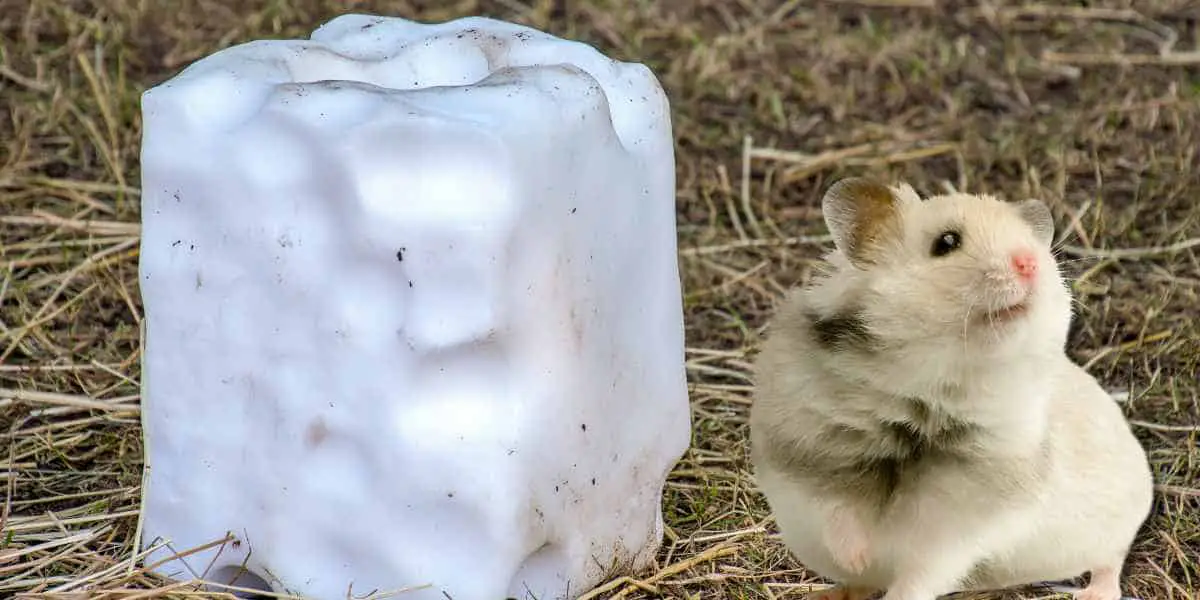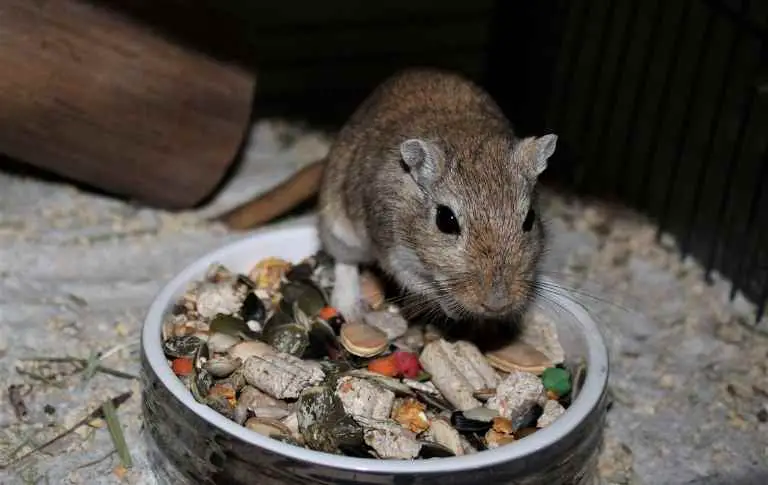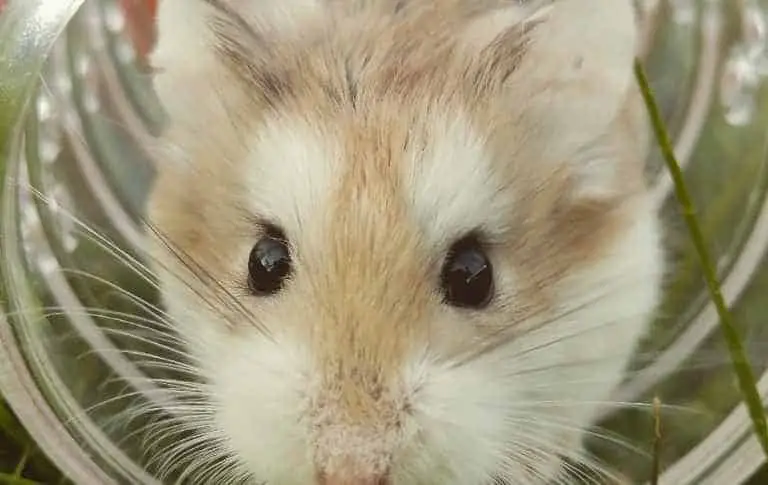Gerbils, those tiny, furry creatures that scurry around in their cages, may seem like low-maintenance pets. But when it comes to their well-being, every detail matters. One common question that arises is whether gerbils need salt licks. Well, the answer might surprise you.
It turns out that gerbils actually don’t require salt licks in their cages. Despite their small size, these little critters already receive enough salt from their regular diet. In fact, too much salt can be harmful to them. So, instead of focusing on providing them with a salt lick, it’s better to pay attention to their overall diet and make sure they’re receiving proper nutrition.
Table of Contents
The Importance of Salt Licks for Gerbils
Gerbils, like many other animals, have certain nutritional needs that must be met for their overall health and wellbeing. One aspect of their diet that often raises questions is the need for salt. In this article, we will explore the importance of salt licks for gerbils, understanding their nutritional needs, the risks of excessive salt consumption, alternatives to salt licks, signs of salt deficiency, monitoring and adjusting their diet, understanding gerbil behavior and needs, potential hazards of salt licks, common misconceptions, and the overall conclusion regarding the importance of a healthy diet for gerbils.
What is a Salt Lick?
Before diving into the importance of salt licks, it is essential to understand what exactly they are. Salt licks are blocks or stones made primarily of salt that animals can lick or gnaw on to obtain necessary minerals, particularly sodium. They are commonly used for livestock and certain wildlife species, but their usage for smaller pets, such as gerbils, can be a topic of debate.
Why Do Animals Need Salt?
Salt plays a crucial role in maintaining the normal functioning of an animal’s body. Sodium, a key component of salt, helps regulate osmotic balance, nerve function, and muscle contractions. Animals need salt to support their physiological processes, including maintaining blood pressure, transmitting nerve impulses, and balancing body fluids. It is an essential mineral that needs to be provided in adequate amounts.
Can Gerbils Benefit from Salt Licks?
The question of whether gerbils can benefit from salt licks has been a subject of discussion among gerbil owners and experts. While some argue that gerbils have specific dietary requirements that can be met without the need for salt licks, others believe that providing a salt lick as an additional source of minerals can be beneficial for their overall health. Let’s explore further to gain a better understanding.

Understanding Gerbil Nutritional Needs
To determine whether gerbils require salt licks, it is vital to first comprehend their natural diet and salt intake in the wild. By understanding their natural dietary habits, we can make informed decisions about meeting their nutritional needs in captivity.
Salt Intake in the Wild
In the wild, gerbils primarily feed on seeds, grains, and vegetation. Their diet consists of a variety of plant materials, including grasses, leaves, bark, and roots. These natural food sources play a significant role in providing the necessary nutrients for gerbils to thrive in their natural habitat.
In their natural environment, gerbils do not have direct access to salt licks. However, their diet typically contains sufficient amounts of natural salts found in the seeds, grains, and vegetation they consume. These natural sources of salt, combined with their ability to conserve and regulate their electrolyte balance, enable gerbils to meet their salt requirements without the need for additional supplementation.
Salt Content in Commercial Gerbil Food
When it comes to commercially available gerbil food, it is important to consider the salt content. Many reputable brands formulate their gerbil food to meet the nutritional needs of gerbils, including the appropriate sodium levels. It is essential to read the product labels and choose a high-quality gerbil food that provides a balanced and complete diet.
While salt is necessary for gerbils’ overall health, excessive salt consumption can lead to several health issues. It is crucial to understand the risks associated with excessive salt intake to ensure the well-being of our gerbil companions.
Health Issues Caused by Excess Salt
Excessive consumption of salt can contribute to various health problems in gerbils. These issues may include kidney problems, high blood pressure, heart issues, dehydration, and electrolyte imbalances. Therefore, it is crucial to maintain an appropriate salt intake to prevent the onset of these health complications.
Impact on Gerbil’s Kidneys
Gerbils, like other animals, rely on their kidneys to filter waste products from their blood and regulate fluid balance. Excessive salt consumption can overload their kidneys, leading to strain and potential damage. It is essential to provide a diet that maintains a healthy balance of sodium intake to prevent any adverse effects on their renal health.
Effects on Water Consumption
Consuming excessive amounts of salt can result in increased thirst in gerbils. This heightened thirst may lead to higher water consumption, which, in turn, might contribute to more frequent urination. It is crucial to ensure access to a fresh and clean water supply at all times to accommodate their increased fluid needs if they consume excess salt.
Alternatives to Salt Licks
Considering the potential risks associated with salt licks, it is essential to explore alternative methods of meeting gerbil’s nutritional needs.
Balanced Diet for Gerbils
Providing a balanced and varied diet should be a top priority to meet the nutritional needs of gerbils. By feeding them a well-rounded diet consisting of high-quality gerbil food, fresh vegetables, and occasional fruits, owners can ensure their gerbil receives the necessary minerals and nutrients without relying solely on salt licks.
Providing Fresh Vegetables and Fruits
Fresh vegetables and fruits play a crucial role in providing gerbils with essential vitamins, minerals, and dietary fiber. These natural food sources can contribute to their overall nutritional requirements while providing enrichment and variety to their diets.
Ensuring Sufficient Water Supply
Maintaining a continuous and readily available water supply is crucial for gerbils. A fresh and clean water source will help them stay hydrated and compensate for any increased fluid needs resulting from their diet or external factors. Providing a water bottle or a shallow dish that cannot be easily tipped over is advisable to ensure their access to water is uninterrupted.
Signs of Salt Deficiency in Gerbils
While excessive salt intake poses a risk to gerbils’ health, insufficient salt levels can also have adverse effects. It is important to be aware of the signs indicating a potential salt deficiency in gerbils.
Lack of Appetite
A decrease in appetite or refusal to eat may indicate a possible deficiency in essential minerals, including salt. It is crucial to monitor their eating habits and address any prolonged changes in appetite promptly.
Dry and Flaky Skin
Insufficient intake of salt can cause dry and flaky skin in gerbils. If you notice unusual changes in your gerbil’s skin health, it is essential to consider their diet and consult with a veterinarian for appropriate guidance.
Muscle Cramps and Weakness
Salt deficiency can lead to electrolyte imbalances, which may manifest as muscle cramps and weakness in gerbils. Observing their physical movements and noting any signs of discomfort is crucial in identifying potential salt deficiency.
Monitoring and Adjusting Gerbil’s Diet
To ensure the health and well-being of gerbils, monitoring and adjusting their diet is a crucial aspect of responsible ownership.
Regular Health Check-ups
Regular veterinary check-ups provide an opportunity for experts to assess your gerbil’s overall health, including their nutritional status. During these visits, veterinarians can provide guidance on diet adjustments, if necessary, based on your gerbil’s individual needs.
Consultation with Veterinarians
If you have concerns about your gerbil’s diet or any related issues, consulting with a veterinarian who specializes in small animals can provide valuable insights and recommendations. They can offer guidance on the appropriate diet for your gerbil’s specific requirements.
Modifying Diet to Meet Individual Gerbil’s Needs
Each gerbil has unique dietary needs, and it may be necessary to modify their diet based on factors such as age, health condition, and individual preferences. Working closely with a veterinarian or an experienced gerbil owner can help tailor a diet plan that ensures optimal nutrition and minimizes the risk of nutritional deficiencies or imbalances.
Understanding Gerbil Behavior and Needs
Beyond their diet, understanding gerbil behavior and needs is essential for their overall well-being.
Grooming and Self-Cleaning
Gerbils are meticulous groomers and spend a considerable amount of time cleaning themselves. They rely on grooming to keep their fur clean, remove any irritants or parasites, and maintain proper hygiene. Owners should provide a dust bath, such as chinchilla sand, to facilitate their grooming routine.
Chewing and Gnawing Habits
Gerbils have a strong instinct to chew and gnaw on objects. This behavior helps wear down their continuously growing teeth and prevents dental issues. Providing appropriate chew toys, such as wooden blocks or safe chew sticks, can fulfill their natural urge for chewing and help maintain their dental health.
Exploration and Environmental Enrichment
Gerbils are highly curious animals, and their environment should provide ample opportunities for exploration and stimulation. Offering tunnels, hideouts, climbing structures, and toys can help keep them mentally and physically engaged, reducing the likelihood of behavioral issues associated with boredom or lack of environmental enrichment.
Potential Hazards of Salt Licks
While salt licks can be a potential source of essential minerals for certain animals, including livestock, there are some hazards associated with their usage for gerbils.
Overconsumption and Sodium Imbalance
One of the primary risks of providing salt licks to gerbils is the possibility of overconsumption. If a gerbil has unrestricted access to a salt lick, it may consume excessive amounts of salt, leading to an electrolyte imbalance and associated health complications. It is crucial to monitor their salt intake and provide alternative sources to meet their nutritional needs.
Physical Injuries and Dental Problems
Salt licks can be hard and potentially damaging to a gerbil’s teeth. Gnawing excessively on a solid block of salt can cause dental issues, such as chipped or broken teeth. This can be painful and result in difficulties eating or discomfort for the gerbil.
Contamination and Bacterial Growth
Salt licks can become contaminated with bacteria or other pathogens when exposed to the gerbil’s saliva or the environment. Due to their porous nature, salt licks may become a breeding ground for bacteria, potentially leading to infections or illnesses. It is essential to maintain proper hygiene by regularly cleaning any salt licks, if used.
Common Misconceptions about Salt Licks for Gerbils
There are several misconceptions surrounding the usage of salt licks for gerbils. It is important to address these misconceptions to ensure the welfare of gerbils.
Belief in Salt as a Universal Requirement
Contrary to popular belief, not all animals require additional salt supplementation through salt licks. While certain species benefit from salt licks due to their specific dietary needs or habitat conditions, gerbils can meet their salt requirements through their natural diet and do not necessarily require salt licks.
Confusion with Other Rodent Species
Salt licks are commonly associated with larger rodent species, such as horses, cows, or deer. However, the nutritional needs and salt requirements of these species may differ significantly from gerbils. It is vital to avoid generalizing and assuming that what works for one rodent species will necessarily apply to gerbils.
Influence of Marketing and Commercial Products
The availability and marketing of salt licks for small pets can sometimes lead to misconceptions about their necessity. It is important to critically evaluate the claims made by commercial products and consult reliable sources, including veterinarians or reputable gerbil care experts, to ensure the best care for your pet.
Conclusion
In conclusion, while gerbils do not necessarily require salt licks, understanding their nutritional needs, monitoring their diet, and providing a well-balanced and varied diet is crucial for their overall health and wellbeing. A healthy diet, complemented by fresh vegetables and fruits, and access to clean water, can significantly contribute to meeting their mineral and nutrient requirements without the potential risks associated with salt licks. By considering the individual needs and behavior of gerbils and raising awareness about proper nutrition, we can ensure the optimal care and happiness of these delightful small pets.




